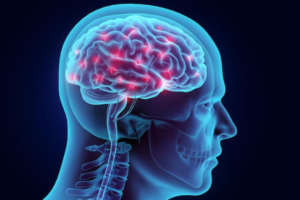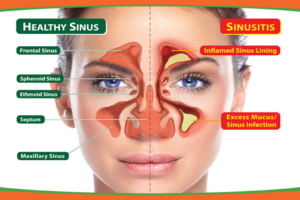Is your headache Migraine?
Most of us often experience head pain. What is a head pain? Sometimes, the symptom of a pain is felt in the areas of the head and neck. Head pain can be caused due to several reasons such as migraine, stress and tension related headache and due to cold. Though a normal headache is not treated seriously it often hampers our energy potential and efficiency to work. A frequent occurrence of head pain can affect your professional life and as well as relationships. Sometimes, the risk of depression increases due to the severe and frequent head pain. The most important thing for the treatment is the identification of the category of your headache. Otherwise, you cannot prevent this type of health hazard.
What is migraine and what are the causes?
As we have stated earlier, there are different causes why we experience head pain. How will you identify if your problem is related to migraine? Most of the common symptoms of migraine include vomiting, nausea, numbness or tingling, difficulty in speaking, sensitivity to light and sound but there are other symptoms also which vary from person to person. A migraine may occur genetically where some particular genetic components are responsible for it. During recent research, this fact has been found. There is no such age limit. It can affect you at any age and at your younger age too.

The period of an attack can vary from individual to individual and according to the severity of your symptoms. In general, it lasts for at least four hours. You have to visit your physician or hospital if you cannot get over even after four days of the migraine attack.
There are different phases of a migraine attack. Sometimes, you can experience the attack even without the head pain. This type of attack is known as “silent migraine” and medically referred to as acephalgic migraine.
How will you differentiate migraine from a regular headache?
It is still debatable whether migraine is a neurological disorder or a neurological disease. It also can affect you without head pain. So, it is not just a regular headache, it includes different devastating neurological symptoms. In general, migraine head pain occurs on one side of the head and throbbing in nature. Therefore, migraine pain is quite different from the regular symptoms caused by the common cold and cough where people experience delicate discomforts related to the head.
Why is sinus different from migraine?
Some people often are confused between the symptoms of migraine and sinus. More than 90% cases, migraine is misdiagnosed as sinus. Whereas the pain related to migraine is associated with facial and forehead pressure, runny nose and nasal congestion, the symptoms of the sinus are related to the blocked and filled sinuses crammed with fluid and other bacterial growth.
What is the definition of sinus or sinus infection? It is the swelling or an inflammation of the tissues lining the sinuses. Normally, a healthy sinus is filled with air. Due to some reasons, these sinuses are blocked or filled with fluid and germs which can cause infection further. Then you will experience discomfort and problems.
Reasons for sinus blockage:
- Sometimes, the common cold causes sinus blockage.
- Allergies rhinitis which swells on the lining of your nose.
- Nasal polyps or small growth particles in the lining of the nose.
- A deviated septum – a change in your nasal cavity.
- Due to the sensitivity and allergic tendency to a particular chemical, a sinus infection may happen.
- Immune system deficiency can cause sinus infections. Sometimes, a certain type of medication can also decrease your natural immunity power. People in this condition may suffer from sinus infections.

How many types of sinus infections may occur?
According to the severity of your infection, sinus can be classified as the following:
Acute sinus: It can start with the common symptoms of cold and cough such as the stuffy and runny nose, head and facial pain. Normally, you have to suffer for 2-4 weeks.
Sub acute sinus: It lasts for 4 to 12 weeks.
Chronic infection: This type of chronic sinus infection or sinusitis will make you suffer for more than 12 weeks.
Infected sinus: It occurs multiple times a year.
How will you get a complete revival from severe head pain, migraine and sinus?
When you get a severe migraine attack you wish to do whatever to get over this problem. If you have a serious attack which lasts for more than 4 days, then you need to follow a proper prescription suggested by a specialist doctor. But you can avoid, prevent or at least lower down the duration and the severity with the help of natural home remedies.
Cool down with an ice pack: Place an ice pack on your forehead or you can substitute it with a piece of wet cloth. It works whatever the actual reason is. Maybe it can reduce blood flow to relax your muscles.
Caffeine: You can have a cup of tea or coffee to get some mild relief. It will absorb fatigue and provide you energy thus you will feel lower pain in your head.
Oil massage: you can use lavender oil as a migraine oil to get relief from the head pain by inhaling it or simply massaging it on your forehead. It will relax your tissues and muscles. If you don’t have lavender, you can choose peppermint oil which contains menthol. You can apply and massage with peppermint oil or any menthol solution on the forehead and temples. It is more effective than any of the popular painkillers that you always take during your migraine and sinus attacks.

Acupressure: You can opt for acupressure therapy. On the particular points of your body, a specialist will apply pressure with the finger. It surely will give you relief from severe migraine and sinus. A proper acupressure can help you to overcome nausea caused by migraine.
Folk remedy with feverfew: It is flowering herb which is used for years to prevent the symptoms of migraine and to get relief from the pain. Though it is not established scientifically yet, experienced people say it reacts positively to lower down the discomfort level and the duration of the pain.
Now you know the difference between migraine pain and normal headache, you have to keep in mind, a severe stage of head pain, migraine and sinus infection should only be treated medically along with a properly prescribed medicine.




